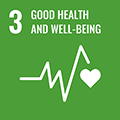INVESTIGATING THE LINK BETWEEN SALT CONSUMPTION AND GASTRIC CANCER
Researchers at Queen’s University Belfast, have contributed to groundbreaking findings on the relationship between salt consumption and gastric cancer. Their study, published in Gastric Cancer, explores how the common habit of adding salt to food at the table might serve as a critical marker for an individual’s risk of developing gastric cancer. This research is particularly relevant as gastric cancer continues to be a major global health challenge, and understanding modifiable risk factors is key to effective prevention strategies.
Research Challenge
A GLOBAL HEALTH THREAT WITH PREVENTABLE FACTORS
Gastric cancer is one of the leading causes of cancer-related mortality worldwide. While known risk factors such as Helicobacter pylori infection and smoking have been widely studied, dietary habits, particularly salt intake, have gained less attention. High salt consumption is a well-established risk factor for gastric cancer in Asian populations, but evidence linking salt consumption to cancer risk in Western countries has been more limited. This study aimed to bridge that gap by investigating the relationship between adding salt to food and the development of gastric cancer in a large UK cohort.
Our Approach
NEW INSIGHTS FROM THE UK BIOBANK STUDY
The study analysed data from the UK Biobank, which includes over 470,000 participants, over a median follow-up period of nearly 11 years. Researchers focused on one simple but important dietary behaviour: the habit of "always" adding salt to food at the table. The team found a significant positive association between this habit and an increased risk of gastric cancer.
Key findings include:
- Increased Risk with Added Salt
Participants who reported always adding salt to their food had a 39% higher risk of developing gastric cancer compared to those who rarely or never added salt. This association persisted even after adjusting for confounding factors such as smoking, alcohol use, and socioeconomic status - Urinary Sodium as a Correlate
The research also found that participants who frequently added salt to food had higher urinary sodium levels, further supporting the link between added salt and sodium intake. The association was consistent across different analytical models, indicating that adding salt at the table is a reliable marker for overall salt consumption - Generalizable Findings Across Populations
While previous studies have focused on Asian populations, this research extends those findings to European populations. This suggests that excessive salt intake, as indicated by the practice of adding salt to food, may be a global risk factor for gastric cancer
“The findings of our study underscore that the simple act of adding salt to food is a significant and easily measurable behaviour linked to increased gastric cancer risk. This provides an opportunity for public health initiatives to reduce overall sodium consumption and, in turn, cancer risk.”
- Alysha Thompson, Queen’s University Belfast
What impact did it make?
Practical Implications for Public Health
This research has far-reaching implications for public health, providing critical insights into how dietary habits can influence the risk of cancer and how these habits can be used in population-level prevention strategies.
- Public Health Messaging
One of the key strengths of this study is its simplicity. The behaviour of adding salt to food at the table is easily observable and can serve as a simple, actionable indicator for individuals and healthcare providers to assess the risk of excessive sodium intake. These findings can inform targeted public health campaigns aimed at reducing salt consumption, a major step in mitigating gastric cancer risk - Policy and Prevention
The results of this study could influence dietary guidelines and policies, particularly in countries with high rates of gastric cancer. By raising awareness about the dangers of excessive salt intake, public health authorities can promote changes in dietary habits that reduce cancer risk. This could include advocating for lower salt content in processed foods and encouraging people to limit the addition of salt to meals - Global Impact on Gastric Cancer Prevention
Given the global burden of gastric cancer, particularly in regions with high rates of the disease, this research can contribute to international efforts to reduce the incidence of gastric cancer. The study provides evidence that salt consumption is a modifiable risk factor, offering a potential pathway for preventing gastric cancer on a large scale
Our impact
Impact related to the UN Sustainable Development Goals
Learn more about Queen’s University’s commitment to nurturing a culture of sustainability and achieving the Sustainable Development Goals (SDGs) through research and education.









